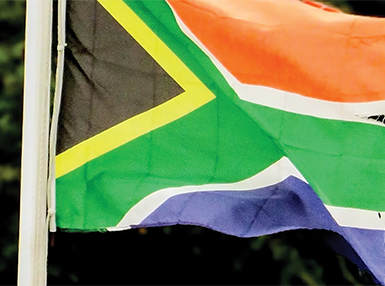INTEREST: Recent political maneuvers between Egypt, Somalia, and Ethiopia have exacerbated long-simmering tensions in the Horn of Africa region.
By Zelalem Tamir
Recent political maneuvers between Egypt, Somalia, and Ethiopia have exacerbated long-simmering tensions in the Horn of Africa region. By pledging military support to Somalia’s fragile government, Egypt seems intent on weakening Ethiopia’s position while also protecting its own interests related to Nile River water access.
However, Egypt’s interference risks destabilizing the entire region at a time when coordinated cooperation is most needed. A measured, diplomatic response is urgently required to de-escalate tensions before they boil over into open conflict.
Egypt views Ethiopia’s Grand Ethiopian Renaissance Dam (GERD) as an existential threat due to its reliance on the Nile River’s waters. With construction nearing completion on the massive hydropower project, Egypt fears its control over downstream flows will diminish. With negotiations stalled, Egypt has signaled it will take any steps necessary to curb Ethiopia’s use of the Blue Nile’s waters. By strengthening ties with Somalia through a new security partnership, Egypt appears to be opening up a new front in its shadow war against Ethiopia’s growing influence.
However, opening this Pandora’s box risks severe unintended consequences across the unstable Horn. Somalia remains embroiled in a low-level civil war against Al Shabaab militants, who continue to carry out attacks despite losing territorial control.
There is legitimate concern any arms or aid sent from Egypt could end up in terrorist hands instead of the ineffective Somali government. This could empower Al Shabaab to wreak even more havoc within Somalia and across its borders. The 2013 Westgate Mall attack in Kenya, which killed over 60 people, shows the group’s reach. Replaying such tragedies would inflict further human suffering and destabilize the entire region.
Ethiopia, for its part, has contributed enormously to stability through its role leading the African Union peacekeeping mission in Somalia since 2007. Over 140,000 Ethiopian troops have helped roll back Al Shabaab and create space for Somalia’s fledgling government to function.
But Ethiopia cannot continue shouldering this massive burden alone, especially with its resources already stretched thinly across internal security threats and development needs.
If drawn into open conflict by Egypt, Ethiopia may be forced to reduce or withdraw support, creating a dangerous power vacuum in Somalia. This could also disrupt ongoing US-backed efforts to rebuild the Somali state.
The Egypt-Somalia military pact also risks inflaming tensions with Somaliland, whose autonomous yet unrecognized government has grown increasingly frustrated over Mogadishu’s claims of sovereignty over its territory. Such volatility would deter outside trade and investment partners crucial for development across the wider Horn region.
Rather than exacerbating conflicts through military brinkmanship, all sides must pursue cooperative, good-faith diplomacy. Egypt’s water security only deserves constructive engagement from Ethiopia and upstream nations. But destabilizing actions will only breed further destabilization with severe human costs.
Ethiopia’s legitimate development and energy needs for its over 100 million citizens must also be respected. An equitable, comprehensive agreement on Blue Nile usage and dam operation remains the best path forward.
The United States, European Union, African Union, and United Nations should help broker confidence-building measures between competing Horn nations. All countries must be willing to compromise rather than issue provocative threats. Meanwhile, Somalia’s neighbors like Ethiopia and regional bloc IGAD must remain committed to the task of rebuilding Somalia from within—not through foreign interference that risks making the situation infinitely worse.
With goodwill and flexibility on all sides, the first step is mutual withdrawal from acts of destabilization that threaten to set the Horn of Africa alight once more. The region has seen too much conflict, and its people aspire primarily to lives of prosperity, safety and self-determination—goals which regional cooperation, not competition, best serve. Diplomacy must prevail before geopolitical power plays plunge the Horn back into an abyss of chaos and bloodshed from which it has only barely emerged. The alternative is too frightening to contemplate.- Modern Diplomacy
Comment
LET THERE BE PEACE IN GAZA
The unanimous decision by the International Court of Justice (ICJ) to preliminarily order the Israeli government to do its utmost and prevent further deaths and injuries of Palestinian men, women and children as well as the destruction of buildings and to allow essential aid into Gaza, is indeed a major victory for human rights.
After almost three months of continuous bombardment of Gaza – which resulted in nearly 26 000 deaths, mostly children, Israel has been ordered to do its utmost best to prevent any acts of genocide in the area. A total 64000 people had been wounded and several hospitals and schools destroyed by the Israeli military since October 7 last year. This was the day when some militants from Gaza launched a surprise attack in southern Israel killing nearly 1200 people and taking about 250 hostages.
Israel then retaliated – non stop – since that day in their bombing of Gaza killing people indiscriminately under the guise of hunting down leaders of the militant group, Hamas. Ever since that day Palestinians have been spending almost every day fleeing from their homes and burying innocent victims of revenge attacks by Israel. This prompted the South African government to lodge a case of alleged genocide against Israel at the ICJ seeking an order for a ceasefire.
Friday’s ruling by the ICJ, according to President Cyril Ramaphosa, should be hailed as a victory for international law , human rights and above all, justice. Indeed. It is victory against leaders who believe they can act with impunity with the aim of exterminating the entire Palestinian nation under the guise of hunting down those responsible for the October 7 attack in Israel.
There was no justification to kill and maim innocent men, women and children. There was no justification to destroy hospitals, schools and people’s properties. There was no justification to render thousands of Palestinians homeless and without essential services all in the name of defending Israel and trying to flush out those responsible for the killing of 1200 Jews three months ago.
The ICJ should be lauded for being on the side of justice and for listening to the cries for help from the Palestinians at a time when millions of people including children in several countries worldwide, have been displaced by wars and violent disputes. What the Israeli military were doing in Gaza were blatant acts of cruelty and violation of human rights. These were deliberate acts to totally destroy a nation whose only sin is to seek self determination and justice.
Human beings all over the world have a right to live and have their rights respected irrespective of their race, religion or any other status. No country has the right to subject another to a state of constant fear, trauma and hopelessness. It is a crime to violate the rights of others.
We hope that the Israeli government will respect the outcome of this august body of legal scholars and heed their plea to exercise restraint. The ruling has paved the way for urgent negotiations between Israel and Palestine to live peacefully side by side.
Nobody loses in the quest for peace
































